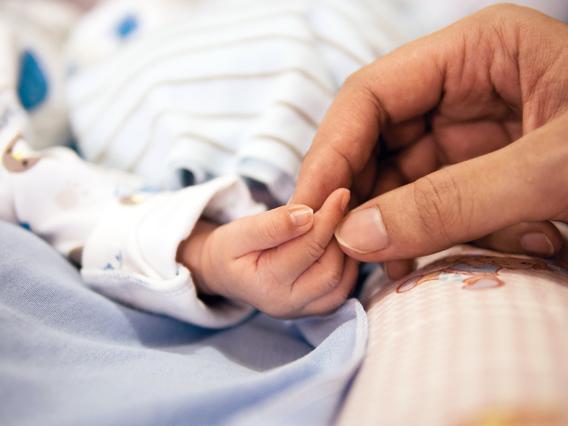You are here
Doctors decry working conditions, unpaid residency programmes
By Mays Ibrahim Mustafa - Sep 24,2022 - Last updated at Sep 26,2022

Representative image (Photo courtesy of unsplash.com/Sasun Bughdaryan)
AMMAN — Using phrases such as “doctors not slaves”, medical residents in Jordan have been protesting poor working conditions and unpaid residency programmes for years, describing them as a form of “forced labour”.
After medical students complete six years of undergraduate studies and an internship year, they either become general practitioners, or pursue further training in a specialised field of medicine through residency programmes, which can last between four and six years.
Every year, roughly 3,000 doctors compete for 1,000 residency slots offered by 10 hospitals, according to Tareq Al Khatib, a representative from “Hajartoona: The National Campaign for Defending the Rights of Resident Doctors”, which was launched in 2019.
“Around 35 per cent of these programmes are unpaid, as many take advantage of doctors’ need to specialise in order to further their careers. Some hospitals even require doctors to pay fees, which range from JD1,100 to JD2,580 per year, for a slot in their unpaid residency programme,” Khatib told The Jordan Times.
Residents at public hospitals earn a salary of around JD750, and sign contracts which follow standard labour laws, guaranteeing a social security scheme, health insurance, yearly vacations, sick leave, 45 hours of work per week and paid maternity leave.
However, Khatib noted that there isn’t clear legislation or a standard contract organising the relationship between residents and hospitals in the private sector.
“They are manipulating the law by claiming that residents are trainees benefiting from a teaching programme, when in fact, 80 per cent of hospitals’ workload falls on resident doctors, who work between 80 and 100 hours a week, with 24-hour shifts,” he said.
The campaign’s name, “Hajartoona”, which means “you forced us to emigrate”, comes from the fact that a large number of doctors are leaving the country for better opportunities, according to Khatib.
Psychiatrist Alaa Al Froukh said that long working hours and sleep deprivation threaten the mental and physical health of physicians, and pose risks to patients due to increased medical errors.
“Two months ago, one of our colleagues, who was a resident, died in a car accident on his way home after a 32-hour shift at the hospital,” Khatib noted.
Residents are also more likely to experience burnout, and they are more susceptible to depression and anxiety disorders, according to Froukh.
“Anxiety and chronic stress can increase the risk of long-term health issues, affect mental abilities, weaken the immune system, increase the risk of infections or contribute to the development of diabetes and heart disease,” he added.
A doctor who spent three years at an unpaid residency programme agreed to speak about his experience with The Jordan Times on the condition of anonymity for fear of jeopardising his career, as he recently managed to transfer to a paid programme.
“During my first year of residency, I worked 115 hours a week. My whole life was at the hospital, and I barely had time to sleep, let alone see my friends and family,” he said.
The following year, the number of shifts he was assigned decreased to only four per month, so he took on a second job.
“I’d leave the hospital at 3pm, then go to work at a private clinic from 5pm until midnight. This left me with practically no free time, so I used to study on slow days, when we didn’t have a lot of patients at the hospital,” he added.
Residents need to pass a test at the end of each year in order to progress to the next year, and to qualify for the Jordanian Board Exam after completing their residency.
The fourth year resident also noted that his tasks never differed much from those of attending physicians.
“I examined patients, wrote prescriptions and even occasionally performed procedures and surgeries unsupervised,” he said, noting that the majority of hospitals are dealing with staff shortages, which puts a lot of pressure on healthcare workers.
Hamada Abu Najmeh, director of the Workers’ House, a local NGO, noted that unpaid residency programmes are “a clear violation” of the Labour Law.
“There has to be standard contracts and training programmes agreed upon by the relevant entities, such as the Ministry of Health and the Ministry of Labour, to organise residents’ relationship with hospitals and ensure they’re not being taken advantage of,” he told The Jordan Times, noting the absence of governmental supervision and regulation over residency programmes.
A former female resident at a private hospital, who also preferred to remain anonymous, noted that the issues surrounding medical residencies go beyond wages.
The Jordanian Labour Law grants 90 days in paid maternity leave for female workers in the public sector, and a 70-day paid maternity leave for female workers in the private sector.
She told The Jordan Times: “I left a paid residency programme, because they refused to give me maternity leave longer than 14 days. Ironically, that programme was in gynaecology and obstetrics”.
She also noted the prevalence of a “toxic culture” in the medical field, as some superiors feel entitled to bully, harass and impose excessive and unjustified punishments on residents.
“I was determined to get past this. I was tough enough to stand up for myself when I was mistreated, and I did my best at my job; there were even times when I had to work for 36 consecutive hours. But the maternity leave was the last straw for me; it would have been child abuse to willingly leave my two-week-old baby,” she added.
According to other female residents at the hospital, maternity leave ranges between two and four weeks, depending on the mother’s year of residency, she noted.
“It was a very difficult time for me, because this is something I worked hard for, and I was forced to give up because I am a mother who made her baby’s health a priority. Senior female residents at the hospital were telling me: ‘we all went through that and we all got past it’, but the thing is, they shouldn’t have,” the former resident said.
The 27-year-old currently works as a general physician at the Ministry of Health, and is continuing to look for a suitable residency programme.
“‘Are you married? Are you pregnant? Do you have children? and are you planning on having children?’ are the most common questions interviewers ask whenever I apply for a residency position. They are even more common than questions about my studies and experience,” she added.
Related Articles
AMMAN — A group of Jordanian doctors has created the hashtag ‘’Doctors not slaves’’ in solidarity with medical residency doctors who do not
AMMAN — Calls are on the rise to extend maternity leave to 90 days instead of 70 for female private sector employees. According t
AMMAN — Hundreds of residency doctors are complaining about being “forced by hospitals in the public and private sectors to work free of cha

















